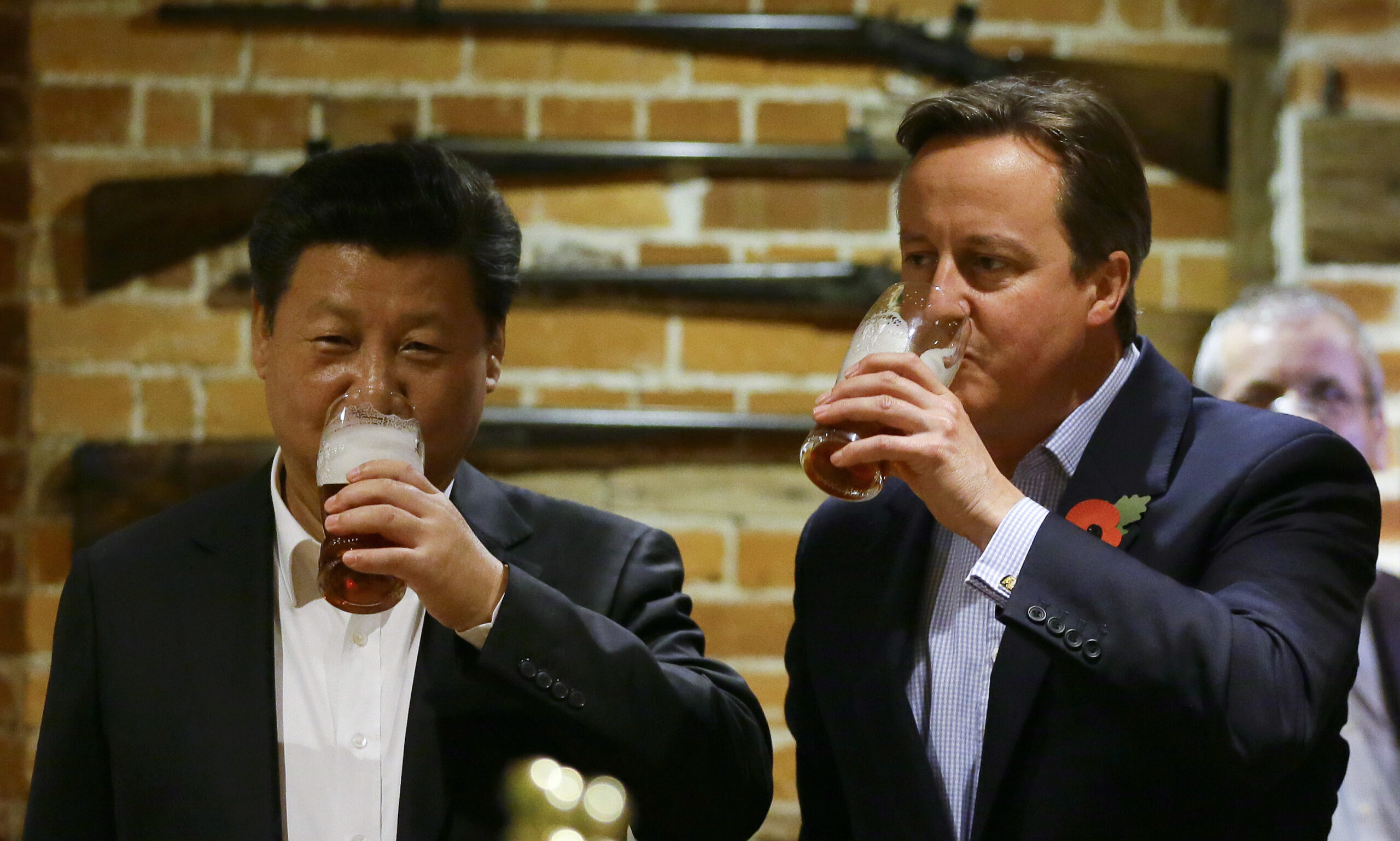Is there a plot to install David Cameron as the next leader of the Conservative Party? Nadine Dorries thinks so — though Cameron himself dismisses the idea (with the condescension dial turned up to 11).
For the moment, we should focus on what he’s been up to as Foreign Secretary. According to the Telegraph, Cameron “wants to visit China as part of his approach of ‘engagement’ with Beijing”. This is unlikely to be a passing whim: planning is almost certainly underway, and the advance notice in the Tory press is just a way of testing the waters. If there isn’t a major backlash from Sinosceptic Conservative MPs, then the trip will go ahead.
Cameron is something of an old China hand. Back in 2013 — when he was still Prime Minister — he led a trade delegation of 131 people including TV executive Sir Peter Bazalgette, businesswoman Karren Brady and former Chelsea left back Graeme Le Saux. Cameron was also PM during Xi Jinping’s state visit in 2015. What a happy time that was — the high point of the so-called “golden era” of Anglo-Chinese relations. A memorable photo op was arranged to mark the occasion — a cheeky pint at The Plough pub near Princes Risborough. The next year the pub was purchased by a Chinese company, which somehow feels symbolic.
If Cameron does jet off to China again, hopefully President Xi won’t be so grand as to not receive the Foreign Secretary in his reduced circumstances. Of course, the chance of a warm welcome will be improved if the Brits choose not to raise awkward issues, such as the plight of Jimmy Lai, the Hong Kong democracy campaigner currently held in solitary confinement.
To his credit, Cameron has called on the Hong Kong authorities to release Lai — and Foreign Office minister Anne-Marie Trevelyan has stated that his case “is a priority for the Government”. But if that’s sincere, one would expect the Foreign Secretary to use any China trip to speak up for Lai, Andy Li and all the other prisoners of conscience. Whether Cameron does or not will go a long way to clarifying the British Government’s true position.
Thus far, it’s been hard to tell. Shortly after becoming prime minister, Rishi Sunak described the Chinese regime as a “systemic challenge to our values and interests”. On the other hand, he has shown signs of weakness — such as not banning China’s Confucius Institutes in the UK.
Of course, Britain is not at war with China. We’re not even at war-by-proxy, as we are with Russia. Threats and opportunities abound, and it would be wrong to take an absolutist line unless forced to. As Donald Trump has tried to explain, a degree of strategic ambivalence makes sense when dealing with Beijing.
And yet there’s a difference between keeping our options open and credulous appeasement. It’s less than a decade since a British government declared its intention to become China’s “best partner in the West”. What followed was the crackdown on democracy in Hong Kong, the horrors inflicted on the Uyghur minority, the escalating threats against Taiwan and the refusal to come clean on the origins of Covid.
Let’s hope that Cameron as Foreign Secretary has learned from his naivety as prime minister.











Join the discussion
Join like minded readers that support our journalism by becoming a paid subscriber
To join the discussion in the comments, become a paid subscriber.
Join like minded readers that support our journalism, read unlimited articles and enjoy other subscriber-only benefits.
Subscribe